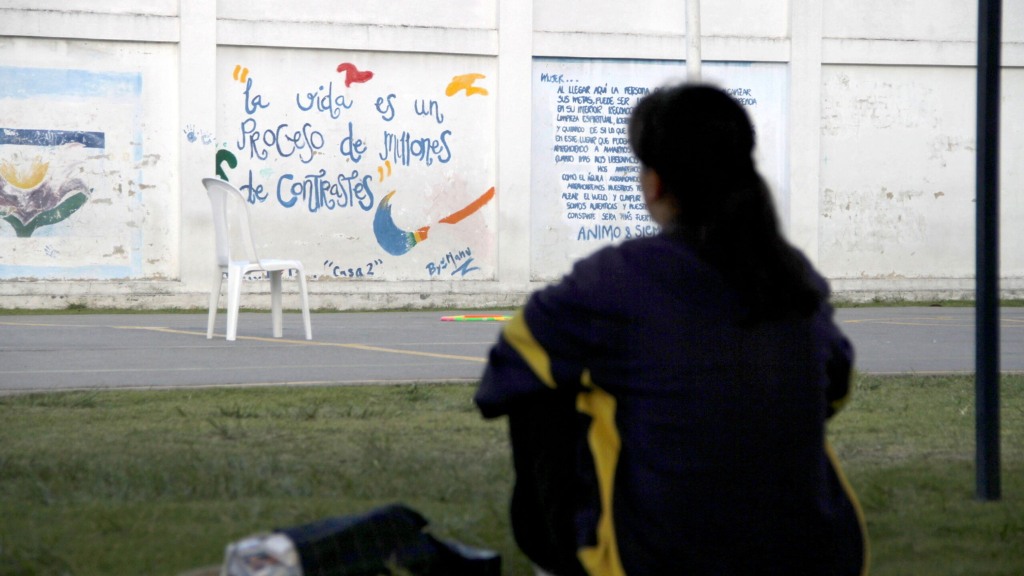Child recruitment into armed groups
Prolonged violence and poverty in Colombia has led to the recruitment of tens of thousands of children into armed groups and gangs.
Colombian children and young people are recruited into armed groups either by force or under the impression that it will offer them an escape from grinding poverty. There, they are forcibly brutalised. Those who attempt to escape face paying for that decision with their life. Those who do manage to escape face severe stigmatisation and a lack of support to help them rebuild their life.
The current situation in Colombia
It is impossible for us to know the real number of children that have been recruited into armed groups.
According to official figures, nearly 18,000 children were recruited into armed groups between 1958 and 2020. During 2023 and 2024, nearly 300 cases of forced child recruitment were registered by the Ombudsman’s Office.
However, the violent world of armed gangs poses many other threats which extend beyond being formally ‘recruited’. This means that the real number of children who have suffered at the hands of these groups is likely to be much higher than official figures suggest.
Risks of child recruitment
In communities with a high presence of armed groups or gangs, children and young people lack spaces to escape the violence which surrounds them or to think about their life goals outside of the conflict, and the violence deters children from travelling to school.
Children that are recruited into armed groups are forced to commit atrocities to prove their loyalty to the group, and those who refuse risk violent punishments and accusations of collaborating with the ‘other side’. They are also face increased risk of sexual violence and exploitation.
If they manage to escape, the trauma caused by their experiences in the groups makes it extremely difficult for children to return to society, and they often face severe stigmatisation from the community. Children who are unable to reintegrate into society run the risk of returning to the armed groups as it is the only way they know how to live.

Cecilia’s story
After being placed in an overcrowded institution after fleeing a guerrilla group, Cecilia was brought to Bogotá to live in a foster home and rebuild her life.
Once an anxious child who dreamed of escaping, she now dreams of becoming a businesswoman and setting up her own hotel chain.

Cecilia’s story
After being placed in an overcrowded institution after fleeing a guerrilla group, Cecilia was brought to Bogotá to live in a foster home and rebuild her life.
Once an anxious child who dreamed of escaping, she now dreams of becoming a businesswoman and setting up her own hotel chain.
How we're combatting child recruitment
We work with our local partners to make communities safer places for children to grow up. We collaborate with them to develop programs that help keep children off the streets and away from the threat of violence and recruitment.
Youth Reintegration into Society: A Community-Based Approach to Mental Health
We provide a community-based approach to psychosocial care, trauma and reintegration to help children at risk of joining gangs and victims of forced recruitment. With our partners CRAN and Tiempo de Juego, we’re working to enhance positive relationships within the community and to change situations of vulnerability and criminality
Each year, CRAN provides foster homes and psychological support to children formerly associated with illegal armed groups, in order to help them recover from trauma, develop necessary life skills to reintegrate into society and access State support.
Tiempo de Juego provides young people in the juvenile justice system and residential care homes with regular sport, art, and therapeutic activities which help them to develop critical thinking skills, empathy, and to manage their emotions.
Football for Peace
We have been working with our partners ACADESAN and GIZ to harness the power of football to keep children and young people in Chocó and Valle del Cauca away from armed groups and illegal activities. Through football, the children are able to connect with their peers and communities and to gain a sense of belonging.
The project provides training to local sports coaches to teach children about peace-building, gender equality, and to develop their social-emotional skills.
We need your help
Our projects are helping to tackle and prevent child recruitment into armed groups, but there’s still a lot of work to be done. Find out how you can get involved to support our mission, or donate today to provide valuable resources to children and young people across Colombia.

